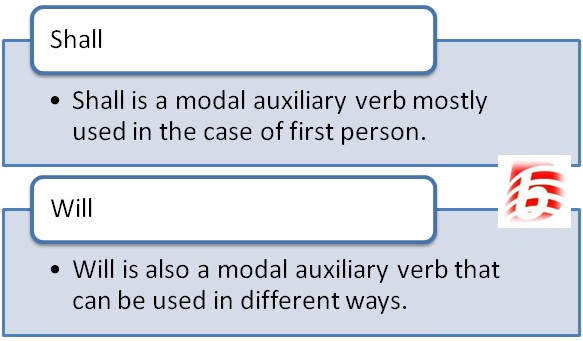Shall vs Will in English Grammar
Shall and Will are two types of modal auxiliary verbs that differ in usage, making it essential to understand the distinction between them in English grammar. The word “shall” originates from the Old English word “sceal,” and it is always used as a verb. In contrast, “will” can function as both a verb and a noun, with its origins in the Old English word “wyllan.” Let’s examine the differences between shall and will in English grammar.
What does Shall mean?
Shall is a modal auxiliary verb primarily used with the first person, as shown in the following sentences:
– I shall write to you as soon as I reach the place.
– We shall meet him tomorrow.
In both examples, the auxiliary verb is used as a future auxiliary form for the first person singular or plural.
Shall can also express suggestions, offers, and requests, as in these sentences:
– Shall I carry your luggage?
– Shall we go out for supper?
– What shall I do now?
In each case, the modal future auxiliary verb “shall” is used with the first person to express an offer, suggestion, or request.
What does Will mean?
Will is another modal auxiliary verb with various uses. It is commonly used in predictions, as in this sentence:
– Do you think it will stop?
Sometimes, will is used to express predictions about the present, such as:
– Don’t disturb them now as they will be having dinner.
Will can also indicate willingness or intention, often showing a willingness to do something or offer assistance, as in these examples:
– I will help the poor boy.
– I will pay the bill on his behalf.
In both sentences, the verb “will” is used to express willingness and intention to help. Additionally, “will” can be used to describe the natural behavior of things, as in this sentence:
– Imitation will not glitter, but real gold will.
Key Takeaways
- Shall is primarily used with the first person and can express suggestions, offers, and requests.
- Will has various uses, including predictions, expressing willingness or intentions, and describing the natural behavior of things.
- Understanding the differences in usage between shall and will is important in English grammar.
